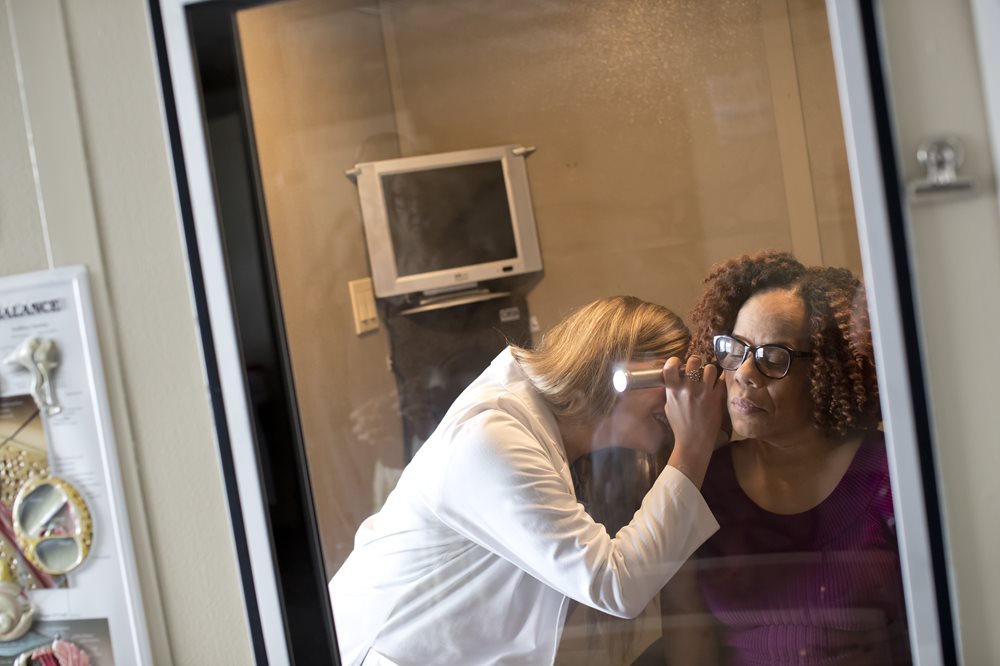Are Heart Disease and Hearing Loss Related? The Ear as a Window to the Heart
 The relationship between heart disease and hearing loss has been investigated for decades and the relationship between cardiovascular disease and sensorineural hearing loss is well-known. In the 1980’s, it was established that the presence of hearing loss preceded the clinical manifestation of ischemic heart disease (restricted blood flow to the heart, which can lead to heart attack). According to the research study, hearing loss could be an important, early maker of a vascular or generalized arteriosclerotic process (the buildup of plaque in the arteries).
The relationship between heart disease and hearing loss has been investigated for decades and the relationship between cardiovascular disease and sensorineural hearing loss is well-known. In the 1980’s, it was established that the presence of hearing loss preceded the clinical manifestation of ischemic heart disease (restricted blood flow to the heart, which can lead to heart attack). According to the research study, hearing loss could be an important, early maker of a vascular or generalized arteriosclerotic process (the buildup of plaque in the arteries).
In the 1990’s, it was established that the presence of low-frequency sensorineural loss (damage to the inner ear, the cochlea) was related to cardiovascular disease (CVD) in both genders, but more so for women than men. For women, the presence of a 40-dB or more low-frequency hearing loss was associated with a tripling of the rate of CVD. In men, the presence of a 40-dB or more low-frequency hearing loss was associated with a tripling of the rate of stroke.
In the 2000’s it was established that low-frequency hearing loss is significantly associated with vascular disease, artery disease, myocardial infarction, strokes and transient ischemic attack (TIA or mini-strokes). The configuration of hearing loss in these patients is typically low-frequency or low-pitched, which can affect the way a patient hears male voices, vowels, and deeper resonances. Someone affected by cardiovascular disease may experience difficulty listening to music or hearing in background noise or in a group setting. Patients with low-frequency hearing loss should be appropriately referred for an evaluation of the risk of cardiovascular events.
 Both cardiovascular and cardio-metabolic diseases often result from lifestyle patterns, including poor nutrition, lack of exercise, smoking, and stress; and these lifestyle patterns were also linked to hearing and hearing loss in older adults. In the 2010’s Charles E. Bishop from the University of Mississippi Medical Center[1], put forward the idea that the ear can be considered a “window to the heart,” whereby certain types of hearing loss indicate the emerging presence of chronic heart diseases. The key message from all of these studies is that some heart diseases and some types of hearing loss are related. If you have heart disease, you should have your hearing evaluated. If you have a moderate, or greater, low-frequency, inner-ear hearing loss, you should have your cardiovascular system evaluated.
Both cardiovascular and cardio-metabolic diseases often result from lifestyle patterns, including poor nutrition, lack of exercise, smoking, and stress; and these lifestyle patterns were also linked to hearing and hearing loss in older adults. In the 2010’s Charles E. Bishop from the University of Mississippi Medical Center[1], put forward the idea that the ear can be considered a “window to the heart,” whereby certain types of hearing loss indicate the emerging presence of chronic heart diseases. The key message from all of these studies is that some heart diseases and some types of hearing loss are related. If you have heart disease, you should have your hearing evaluated. If you have a moderate, or greater, low-frequency, inner-ear hearing loss, you should have your cardiovascular system evaluated.
This does not necessarily mean there is nothing you can do; a healthy heart can lead to healthy hearing. Increasing physical activity can increase blood flow to the ears, which may decrease your risk for hearing loss. This type of hearing loss can also be managed with the help of an audiologist, who can provide a comprehensive hearing evaluation as well as amplification as a treatment option.
If you have noticed a change in your hearing or are curious about your hearing health, make an appointment with the Pennsylvania Ear Institute at 215.780.3180.